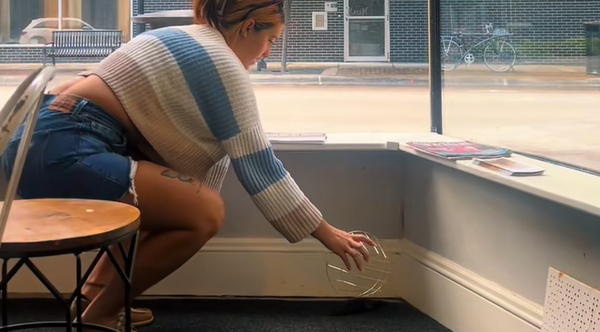Scientists Claim Time On The Playground Is More Beneficial Than Time In The Classroom
August 6, 2014
A new study shows that when it comes to a child's brain development, time in the classroom may be less important than time on the playground.

image credit unknown
"The experience of play changes the connections of the neurons at the front end of your brain," says Sergio Pellis, a researcher at the University of Lethbridge in Alberta, Canada. "And without play experience, those neurons aren't changed," he says.
"It is those changes in the prefrontal cortex during childhood that help wire up the brain's executive control center, which has a critical role in regulating emotions, making plans, and solving problems," Pellis says. "So play," he adds, "is what prepares a young brain for life, love and even schoolwork."
"But to produce this sort of brain development, children need to engage in plenty of so-called free play," Pellis says. "No coaches, no umpires, no rulebooks."
"Whether it's rough-and-tumble play or two kids deciding to build a sand castle together, the kids themselves have to negotiate, well, what are we going to do in this game? What are the rules we are going to follow," Pellis says. "The brain builds new circuits in the prefrontal cortex to help it navigate these complex social interactions."

image credit unknown
Much of what scientists know about this process comes from research on animal species that engage in social play.
"For one thing, play behavior is remarkably similar across species. Rats, monkeys, and children all abide by similar rules that require participants to take turns, play fair, and not inflict pain. Play also helps both people and animals become more adept socially," Pellis says.
"And in people, an added bonus is that the skills associated with play ultimately lead to better grades."
In one study, researchers found that the best predictor of academic performance in eighth grade was a child's social skills in third grade.
Another hint that play matters, Pellis says, is that "countries where they actually have more recess tend to have higher academic performance than countries where recess is less."
Via NPR
Click Here For The Most Popular On Sunny Skyz
 Couple Rescues Prairie Dog From Their Dog's Mouth, Then Decides To Adopt It
Couple Rescues Prairie Dog From Their Dog's Mouth, Then Decides To Adopt It
 Ohio Man Makes Waves With His Fully Functioning Hot Dog Boat
Ohio Man Makes Waves With His Fully Functioning Hot Dog Boat
 These Are The Movie Scenes People Say Are Absolutely Flawless
These Are The Movie Scenes People Say Are Absolutely Flawless
 Why Hope Is The Key To A Meaningful Life, Backed By New Research
Why Hope Is The Key To A Meaningful Life, Backed By New Research
 Judge Waives Parking Fines So Dad Can Keep Supporting SonŌĆÖs Space Dreams
Judge Waives Parking Fines So Dad Can Keep Supporting SonŌĆÖs Space Dreams
 Hungry Elephant Casually Walks Into Grocery Store For Snacks In Thailand
Hungry Elephant Casually Walks Into Grocery Store For Snacks In Thailand
 Woman Tries To Help Bird, Then This Happened... And We Can't Stop Laughing
Woman Tries To Help Bird, Then This Happened... And We Can't Stop Laughing
 Sassy Pig Throws Hilarious Tantrum, Slams Door And Gives Mom Silent Treatment
Sassy Pig Throws Hilarious Tantrum, Slams Door And Gives Mom Silent Treatment
 Concerned Momma Moose Wanders Into Alaska Firehouse
Concerned Momma Moose Wanders Into Alaska Firehouse
 Artist Creates Mesmerizing Optical Illusion Using Just A Marker And A Spinning Wheel
Artist Creates Mesmerizing Optical Illusion Using Just A Marker And A Spinning Wheel
 UPS Driver Joins Teenagers On Graduation Slip ŌĆÖN Slide
UPS Driver Joins Teenagers On Graduation Slip ŌĆÖN Slide
